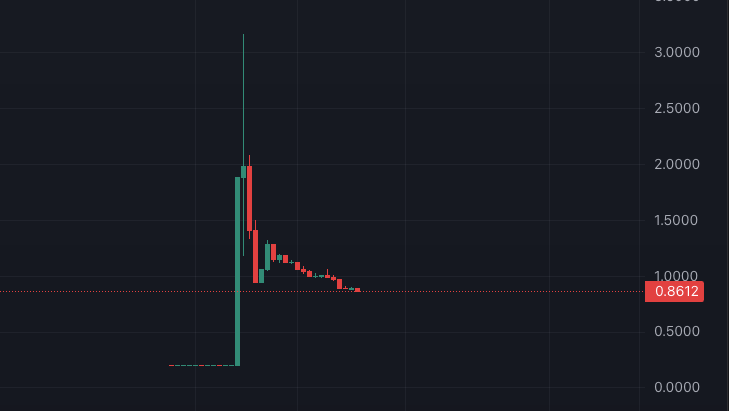
Crypto Investment Scams
From false market tips to fake followers, here’s how scammers are weaponizing group chats to empty your wallet.
They don’t cold-call anymore. They don’t need to.
These days, the scammer’s favorite hunting ground isn’t some sketchy website. Instead it’s the messaging apps you use every day. Telegram. WhatsApp. Discord. Quiet little places that feel private. Cozy. Safe. And that’s exactly why they work so well.
Welcome to the world of the Investment Group Scam, a polished hustle that preys on trust, community, and the illusion of exclusivity. If you’ve ever been added to a mysterious crypto trading group out of the blue, or invited by a smooth-talking “mentor” who swears they’ve cracked the code to generational wealth then you need to pause. This isn’t just spam. It might be the beginning of a very calculated con.
The Setup: A Private Room With a Public Lie
It often begins innocently. Maybe someone reaches out on Instagram, asking if you’re interested in trading. Or maybe you’re automatically added to a Telegram group that looks like it’s buzzing with smart investors. Either way, the formula is almost always the same.
You’ve entered the lion’s den dressed as opportunity.
Inside these group chats, there’s usually a central figure, the so-called “guru.” They’re calm. Confident. They post daily market updates sprinkled with jargon just convincing enough to seem credible. They talk about winning trades. Screenshots of profits. Sometimes they even name-drop major institutions or claim to be licensed professionals. (Spoiler: they’re not.)
Right behind them is a loyal assistant. You can think of them as the guru’s echo chamber. They reinforce every message, cheer on every signal, and occasionally answer questions like a helpful mod in a Reddit thread. But they’re not there to help. They’re there to build belief.
The Cast of Fakes
It doesn’t stop with the guru and their number two. These chat rooms are usually teeming with enthusiastic “members” who sing the guru’s praises. But here’s the trick: they’re fake. Either burner accounts run by the scammers themselves, or bots designed to make the group look larger and more active than it really is.
Think of it as a virtual Truman Show. You’re the only real participant. The rest? Just actors following a script.
These sockpuppets post things like:
“Thanks to you, I made 3x on that last trade!”
“Just wanted to say this group changed my life 🙏🏼”
It’s all bait—meant to make you believe this works and that everyone else is doing it.
The Hook: Confidence, Then Coercion
The early days are easygoing. The guru might give out free trading tips, call a few moves that just so happen to hit, and win your trust. But eventually, things shift. The tone changes.
Suddenly, there’s urgency.
They’ll start recommending specific trades. These recommendations are usually with links to obscure platforms or tokens. These are rarely real investments. They’re exit scams, pump-and-dumps, or liquidity traps where only the scammers win. And once you send money, you’re in their world.
Refuse? Expect pressure. Sometimes emotional manipulation. “I’m trying to help you,” they might say. “Don’t miss the opportunity your future self will regret.”
Red Flags to Watch For
Now that you know the playbook, here are a few warning signs that should immediately raise your guard:
- Unsolicited Invites: Real investment professionals don’t cold-message strangers or randomly add people to trading groups.
- Guru Culture: If the group revolves around a single figure whose advice is never questioned, that’s a cult—not a community.
- Echo Chamber Bots: Too many users agreeing in unison? Lots of vague praise and zero critical discussion? Likely fake.
- Emotional Manipulation: Genuine investment groups offer analysis, not ultimatums.
- Sketchy Links: Be especially wary of being directed to new, unverified platforms. These may be built solely to steal your funds.
What To Do If You’re Targeted
- Don’t Engage – Any interaction signals interest. Leave the group immediately.
- Report and Block – Most platforms have built-in reporting tools.
- Warn Others – Post a heads-up in trusted crypto communities.
- Stay Curious, Stay Skeptical – Ask yourself: “If this is such a goldmine, why are they sharing it with strangers on Telegram?”
You Are Already Ahead of the Game
At the heart of the Investment Group Scam lies a dark truth: the human need to belong can be used against us. These scammers don’t just target your wallet. They target your trust, your hope, your fear of missing out.
But knowledge is power. The more you understand how the scam works, the harder it becomes for them to succeed.
So, the next time you find yourself added to a mysterious investment group, don’t be flattered. Be suspicious. Because when everyone in the room is trying to sound helpful, but only one person stands to lose money… that person is probably you.
And finally, please teach your boomer family members about this scam. They are the ones falling for it the most.
S Taylor is a crypto trader with five years of experience, having navigated a wide range of market dynamics and witnessed numerous scams firsthand. As a former victim of scams, S Taylor turned their focus to blockchain forensics and Solidity Smart Contract development, gaining deep technical expertise in the field. With a unique insider’s perspective, they’ve been involved in various crypto projects, where they’ve seen how developers can exploit vulnerable investors.
S Taylor is also the published author of Meme Coins Made Easy, a comprehensive guide that teaches beginners about cryptocurrency and how to identify and avoid common scams. S Taylor is dedicated to sharing valuable insights and helping the crypto community stay informed and safe.
Disclaimer: This article is for informational purposes only and should not be considered legal, tax, investment, or financial advice.



